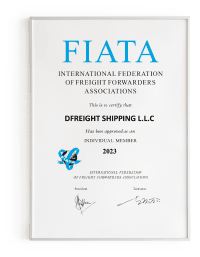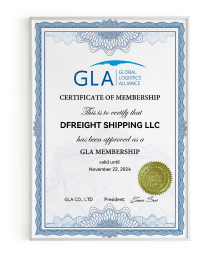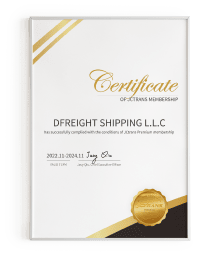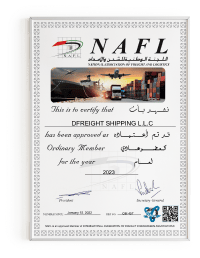Air Freight to Japan
Air Freight to Japan
Fast, Reliable, and Efficient Air Freight to/from Japan
DFreight Air Freight Service is your top choice for swift and dependable air cargo shipping to/from Japan. For a variety of commodities, including perishable goods, healthcare supplies, electronics, machinery, or anything that demands fast delivery from Japan to the UAE and vice versa, we’ve got you covered. With years of expertise, comprehensive solutions, a commitment to on-time delivery, cutting-edge technology, top-notch security, competitive pricing, and a global reach, we’re here to make your airfreight experience seamless and worry-free. Trust DFreight for excellence in air shipping and submit your inquiry right away to receive the best competitive prices for your air cargo to/from Japan.

JapanExports and
Imports
The top exports of Japan are Cars, Integrated Circuits, Motor vehicles; parts and accessories, Machinery Having Individual Functions, and Photo Lab Equipment, exporting mostly to China, United States, South Korea, Chinese Taipei, and Hong Kong.
The top imports of Japan are Crude Petroleum, Petroleum Gas, Integrated Circuits, Broadcasting Equipment, and Computers, importing mostly from China, United States, Australia, South Korea, and Chinese Taipei.
Market Update
According to OEC, in 2020, Japan was the number 3 economy in the world in terms of GDP, the number 4 in total exports, the number 5 in total imports, the number 28 economy in terms of GDP per capita and the number 1 most complex economy according to the Economic Complexity Index.
Japan exported US$8.48 Billion during 2022 to the United Arab Emirates and imported US$45.8 Billion during 2022 from the UAE, according to the Trading Economics database.
In 2023, the freight market in Japan and the UAE is expected to be robust. With the world’s third-largest economy and a major international gateway, Japan is one of the most critical players in global logistics and trade. The UAE is also a significant player in the global economy and is looking to expand its logistics capabilities, focusing on air, sea, and land transportation. In the coming years, both countries are expected to increase their investments in the freight industry, as well as improve their infrastructure, to be able to accommodate the rising demand for cargo services. This could create a strong and dynamic market for shippers, which would benefit both Japan and the UAE.
Banned Products
There are a number of products that are banned from being imported into Japan. These include:
1. Alcohol with an alcohol content of more than 1%.
2. Tobacco products.
3. Firearms and ammunition.
4. Obscene material, including books, magazines, and videos.
5. Narcotics and psychotropic substances.
6. Counterfeit goods.
7. Endangered animal or plant species.
8. Asbestos–containing products.
9. Radioactive materials.
10. Products containing ozone–depleting substances.


Documents & Customs Clearance
One thing to take into account when exporting cargo internationally is customs clearance. You must be aware of the customs clearance regulations of the destination countries when shipping cargo from Japan.
The following documentation must be given to local customs for international shipments by the supplier, consignee, or intermediary:
– A commercial invoice
– A packing list
– A bill of lading
– A certificate of origin
Shipping Different Commodities from/to Japan
How to Ship Machinery to the UAE
Shipping Live Animals by Air: An Overview
How to Ship Frozen Food: An Ultimate Guide
Major Air Cargo Port
-
Italy
Germany
United Kingdom
Netherlands
France
Turkey
Spain
Denmark
Switzerland
Czech Republic
Hungary
Poland
Romania
Greece
Portugal
Slovakia
Sweden
Ireland
-
China
India
Taiwan
Hong Kong
Japan
Singapore
South Korea
Malaysia
Qatar
Indonesia
Saudi Arabia
Thailand
Bangladesh
Lebanon
Kuwait
-
Uganda
Congo
Egypt
Rwanda
Kenya
South Africa
Morocco
Algeria
-
-
-


We consolidate cargo from Germany, Belgium, France, Luxembourg, and nearby cities to Amsterdam, then ship it directly to Dubai.
Certificates & Memberships




- Stress-Free Documentation We simplify the paperwork process, making it easy for you to focus on what matters most – your shipment.
- Clear Cost Breakdown Our pricing is straightforward, with a detailed breakdown so you can see exactly where your money goes.
- Dedicated Support We’re just a click away. Your dedicated support team is there to address any questions or concerns promptly.
- Live Shipment Tracking Easily follow your ocean and air freight shipments 24/7 with real-time tracking. No more unexpected delays.
Ship Your Cargo with Ease
Get Started Today!
Why Choose Consolidated Air Freight?
Guaranteed Space
Secure your cargo space without worries.
Reliable Scheduling
Count on our reliable predictive schedules
Nationwide Collections
We pick up your cargo throughout Benelux and Germany
Regional Trucking
Benefit from local trucking within Europe and GCC
Competitive Pricing
Enjoy market-competitive air freight rates
Fast Delivery
Rapid and secure shipping for time-sensitive items
Regional Trucking
Benefit from local trucking within Europe and GCC
Competitive Pricing
Enjoy market-competitive air freight rates
Fast Delivery
Rapid and secure shipping for time-sensitive items
Guaranteed Space
Secure your cargo space without worries.
Reliable Scheduling
Count on our reliable predictive schedules
Nationwide Collections
We pick up your cargo throughout Benelux and Germany
Any Questions?
Reach out to us, and our experts will work with you to discover the tailored solution you need.





 Germany
Germany Netherlands
Netherlands Luxemburg
Luxemburg Belgium
Belgium





